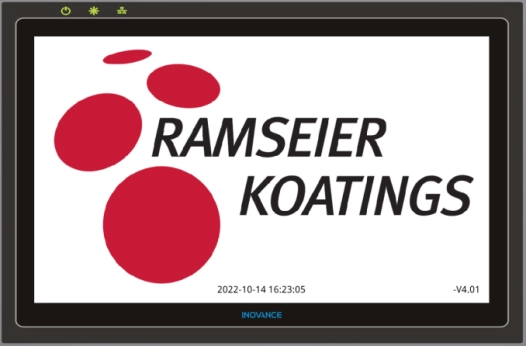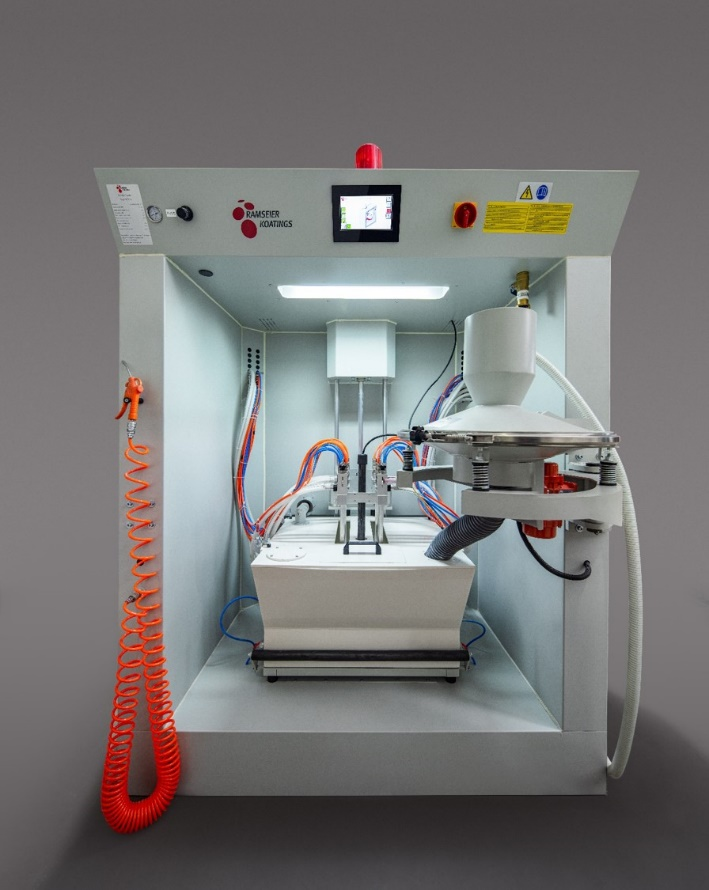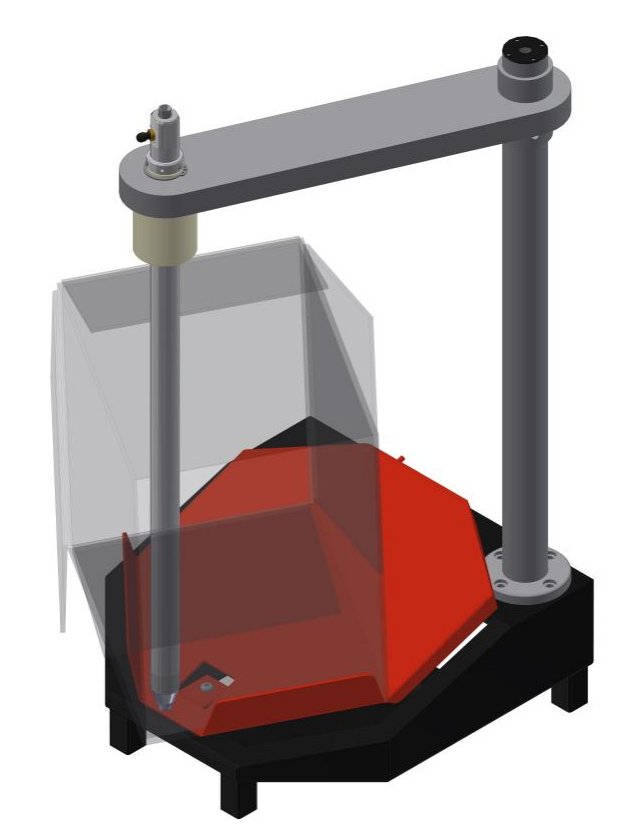Content Menu
● Understanding Powder Coating Technology
>> What is Powder Coating?
>> The Traditional Powder Coating Process
● The Rise of Smart Control Systems
>> What Are Smart Control Systems?
>> Key Features of Smart Control Systems
● Benefits of Smart Control Systems in Powder Coating
>> Enhanced Efficiency
>> Improved Quality Control
>> Cost Savings
>> Sustainability
● Applications of Smart Control Systems in Powder Coating
>> Automotive Industry
>> Appliance Manufacturing
>> Furniture Production
● The Future of Powder Coating Technology
>> Industry 4.0 and Beyond
>> Challenges and Considerations
● Conclusion
>> Frequently Asked Questions
The powder coating industry is on the brink of a significant transformation, driven by advancements in smart control systems. These systems are not just enhancing the efficiency and quality of powder coating processes; they are redefining the entire landscape of manufacturing. This article explores the reasons why smart control systems are the future of powder coating technology, examining their benefits, applications, and the impact they have on sustainability and productivity.

Understanding Powder Coating Technology
What is Powder Coating?
Powder coating is a finishing process that involves applying a dry powder to a surface, which is then cured under heat to form a hard, durable finish. This method is widely used in various industries, including automotive, appliances, and furniture, due to its superior durability and environmental benefits compared to traditional liquid coatings.
The Traditional Powder Coating Process
Traditionally, powder coating involves several manual steps, including surface preparation, application, and curing. While effective, this process can be labor-intensive and prone to inconsistencies, leading to variations in finish quality. The introduction of smart control systems aims to address these challenges by automating and optimizing the entire process.
The Rise of Smart Control Systems
What Are Smart Control Systems?
Smart control systems integrate advanced technologies such as artificial intelligence (AI), the Internet of Things (IoT), and data analytics into manufacturing processes. In the context of powder coating, these systems enable real-time monitoring, automated adjustments, and predictive maintenance, significantly enhancing operational efficiency.
Key Features of Smart Control Systems
1. Real-Time Monitoring: Smart systems continuously track various parameters, such as temperature, humidity, and powder application rates, ensuring optimal conditions for coating.
2. Automated Adjustments: These systems can automatically adjust settings based on real-time data, reducing the need for manual intervention and minimizing human error.
3. Data Analytics: By analyzing historical data, smart control systems can identify trends and predict potential issues, allowing for proactive maintenance and improved quality control.
4. Integration with Robotics: Many smart control systems are designed to work seamlessly with robotic applicators, enhancing precision and consistency in powder application.
Benefits of Smart Control Systems in Powder Coating
Enhanced Efficiency
One of the most significant advantages of smart control systems is their ability to enhance efficiency. By automating various aspects of the powder coating process, manufacturers can achieve higher throughput with less downtime. For instance, automated systems can operate continuously, reducing the time required for manual setup and adjustments.
Improved Quality Control
Smart control systems contribute to improved quality control by ensuring consistent application of powder. With precise monitoring and automated adjustments, these systems minimize the risk of defects such as uneven coating or overspray. This leads to higher-quality finishes that meet stringent industry standards.
Cost Savings
The implementation of smart control systems can lead to substantial cost savings. By reducing material waste through precise application techniques and minimizing rework due to defects, manufacturers can lower their overall production costs. Additionally, the predictive maintenance capabilities of these systems help avoid costly downtime and repairs.
Sustainability
As industries increasingly focus on sustainability, smart control systems play a crucial role in reducing the environmental impact of powder coating. These systems optimize energy usage and minimize waste, contributing to greener manufacturing practices. For example, by accurately controlling powder application, manufacturers can reduce overspray and lower the amount of material needed for each job.
Applications of Smart Control Systems in Powder Coating
Automotive Industry
In the automotive sector, smart control systems are revolutionizing the powder coating process. With the need for high-quality finishes that can withstand harsh conditions, manufacturers are turning to automated systems that ensure consistent application and durability. These systems also allow for rapid changes in color and finish, catering to the diverse needs of automotive clients.
Appliance Manufacturing
Appliance manufacturers benefit from smart control systems by achieving uniform finishes on various components. The ability to monitor and adjust the coating process in real-time ensures that each part meets quality standards, reducing the likelihood of defects and returns.
Furniture Production
In furniture production, smart control systems enable manufacturers to apply powder coatings efficiently across a range of materials and shapes. The flexibility of these systems allows for quick adjustments, making it easier to switch between different products without significant downtime.
The Future of Powder Coating Technology
Industry 4.0 and Beyond
The integration of smart control systems in powder coating is a key component of the broader Industry 4.0 movement, which emphasizes automation, data exchange, and smart manufacturing. As more companies adopt these technologies, the powder coating industry will continue to evolve, becoming more efficient, sustainable, and responsive to market demands.
Challenges and Considerations
While the benefits of smart control systems are clear, there are challenges to consider. The initial investment in technology and training can be significant, and companies must ensure that their workforce is equipped to manage and maintain these advanced systems. Additionally, as with any technology, there is a need for ongoing updates and improvements to keep pace with industry advancements.
Conclusion
Smart control systems are poised to transform the powder coating industry, offering enhanced efficiency, improved quality control, and significant cost savings. As manufacturers embrace these technologies, they will not only improve their operations but also contribute to a more sustainable future. The future of powder coating technology lies in the hands of those who are willing to innovate and adapt to the changing landscape of manufacturing.

Frequently Asked Questions
1. What are the main advantages of using smart control systems in powder coating?
- Smart control systems enhance efficiency, improve quality control, reduce costs, and promote sustainability.
2. How do smart control systems improve quality in powder coating?
- They ensure consistent application through real-time monitoring and automated adjustments, minimizing defects.
3. What industries benefit most from smart control systems in powder coating?
- The automotive, appliance, and furniture industries are among the primary beneficiaries.
4. What challenges do manufacturers face when implementing smart control systems?
- Initial investment costs, the need for workforce training, and ongoing technology updates can pose challenges.
5. How do smart control systems contribute to sustainability in powder coating?
- They optimize energy usage and reduce material waste, leading to more environmentally friendly manufacturing practices.
Hot Tags: China, Global, OEM, private label, manufacturers, factory, suppliers, manufacturing company










































 .
. 